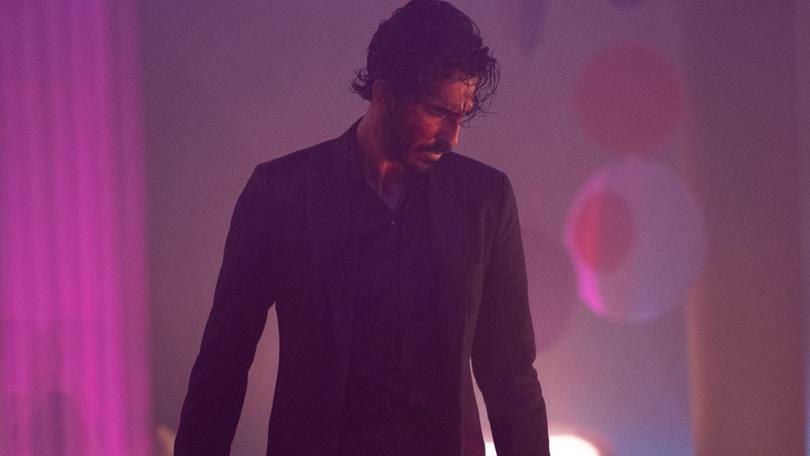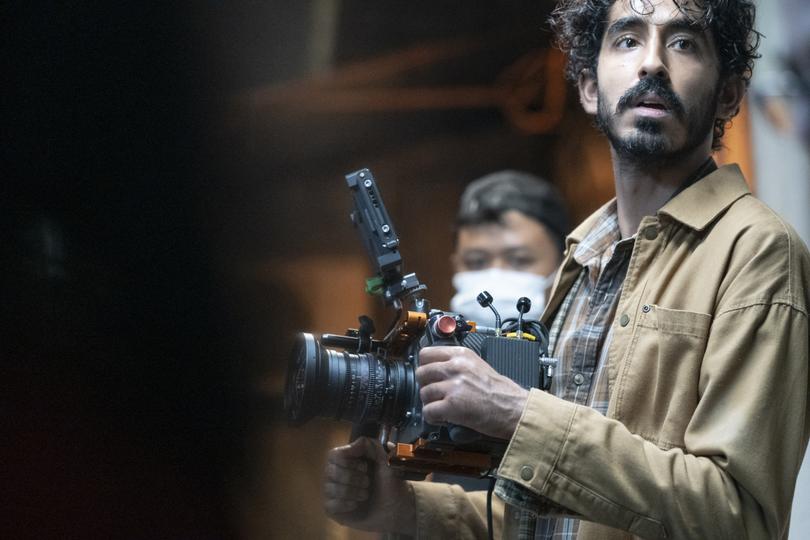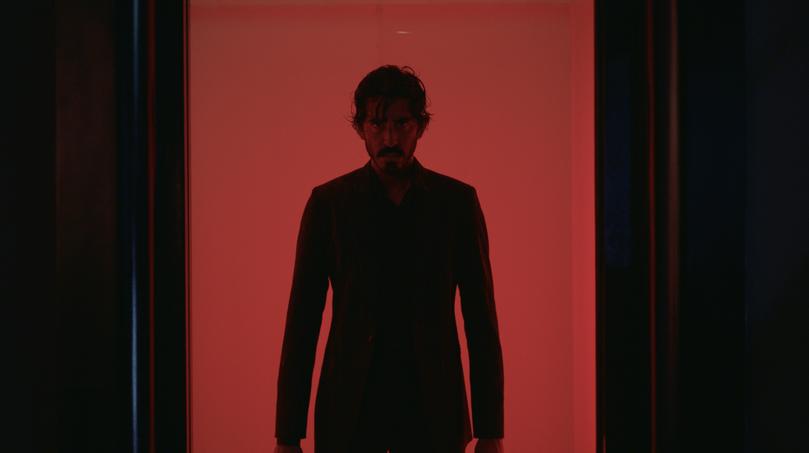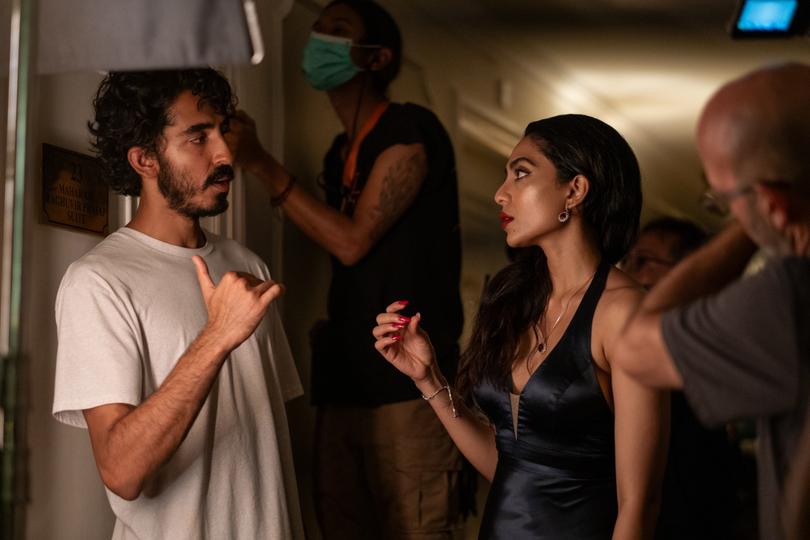Dev Patel’s Monkey Man odyssey: To the heart of darkness and back

Dev Patel wasn’t meant to direct Monkey Man. He was helping to co-write the movie in which he stars as a young man from the slums in India, seeking bloody vengeance against a corrupt and murderous elite, when it was suggested he step behind the camera.
Patel had wanted Neil Blomkamp, the District 9 South African filmmaker with whom he worked on Chappie. But the more time the two spent talking about Monkey Man, it was clear to Blomkamp that Patel should take the reins.
“He said to me, ‘Dude, this is in you, it’s in every fibre of your being, you have to do this’. And that was him nudging me in that direction,” Patel told The Nightly. “That changed everything and then I just took it and ran with it.”
Sign up to The Nightly's newsletters.
Get the first look at the digital newspaper, curated daily stories and breaking headlines delivered to your inbox.
By continuing you agree to our Terms and Privacy Policy.It’s an ambitious production for a first-time helmer. It’s a John Wick-ian, high-octane action movie with complex set pieces, big emotional beats fuelled by a character’s deep trauma and loads of location filming. Plus, Patel is in 95 per cent of the scenes. Was he a bit of a masochist?

“Let’s just say anyone within a couple of feet radius of me at one point or another thought I had lost my mind. If you’ve seen the documentary of the making of Apocalypse Now, The Heart of Darkness, I had my own mini version of that. It was tough.
“There’s a quote in the film itself that was the greatest teacher. It’s an Indian philosophical quote. It goes, ‘The pain will leave you once it’s finished teaching you.’ And through the physical and emotional torture of making it, I always held that quote tightly.”
Patel didn’t have a heart attack during the making, unlike Martin Sheen, but he did break a couple of bones and tore some muscles - “It’s part and parcel of doing a movie like this, unfortunately”.
The action choreography was demanding and complicated and Patel had to punch and kick and get punched and kicked. Again and again. He would’ve loved to have had the luxury of time to build an action-hero body, but he didn’t have five hours a day to work out and eat high-protein meals.
“We were frantically trying to build sets, trying to figure out how to change locations and losing locations every day,” he lamented.
So, Patel would wake up at some ungodly hour and do a hobbled-together training regime. Like his character in the film, it was super lo-fi, with buckets, rubber bands and drills.

“He had to be a believable underdog that you genuinely feared about whether he was going to get out of a scenario,” Patel explained. “Not someone who looked like he was busting out of his suit and had all the perfect quips and wouldn’t break a sweat.
“I wanted him to be absolutely mauled and feel like a caged animal at the beginning of this movie. I was going for a poor man’s Bruce Lee, shredded everyman type of thing.”
Monkey Man has been a labour of love Patel started more than five years earlier but the real genesis goes back much further to the stories his grandfather told him when he was growing up.
Laced throughout Monkey Man is the mythology of Hanuman, a Hindu deity who is often depicted in the form of a simian. He said, “I thought he was the absolute coolest, and there are even parallels to Superman in the way he can fly, has superhuman strength and splits his chest open.
He wanted Monkey Man to be cool but also to have substance, and his character almost channels Hanuman’s quest for wisdom, strength and justice. Referred to as the kid, Patel’s hero uses violence in a violent world and while his enemies are specific in the story, they represent systemic crimes.
One is the police chief who abuses his power, the other is a businesswoman who exploits her workers and enables corruption and the third is a religious leader whose shady dealings include murder and stealing land from the most vulnerable.
The narrative is pushing towards local elections where the power of the status quo will, again, be enshrined in and enabled by law.

If you engage with it, Monkey Man has a clear throughline of social critique of Indian politics, where Prime Minister Narendra Modi and his party have been accused of oppression, marginalisation and inciting hatred against the country’s minority communities, especially its Muslim population.
Patel, who is a second-generation British actor of Indian heritage, said he didn’t want Monkey Man to be an “absolute lesson” in politics and history but he wanted to feed audiences something more substantial than just a gore-fest of violence.
He wants Monkey Man to have cultural and emotional relevance and hopes that if audiences are moved by it, they might search online to broaden their knowledge.
“There is so much happening in the world, and it’s happening in the West too,” he said.
“It’s the same stuff, the manipulation of religion and politics, violence against women and police brutality. All of those things we touch on in this movie.”
The combination of stylised, visceral action and heart and brains certainly connected with audiences at the SXSW festival in Austin, Texas last month where Monkey Man debuted. Patel was greeted with lines stretched three times around the block, a standing ovation and the audience award.
“People were hooting and hollering, I was pretty overwhelmed by it,” he recalled with a smile.

And it almost didn’t happen this way. The movie was originally sold to Netflix without a theatrical distribution. But then Jordan Peele (Get Out, Us, Nope) saw it and knew it had to be seen on a big screen.
His production company, Monkey Paw, bought the rights off Netflix and set it up at Universal, who will now roll it out in cinemas across the world, including in Australia where Patel has been based on-and-off for the past few years with his Adelaide-born girlfriend Tilda Cobham-Hervey.
“I was trying to birth this film and at one point, I was trying to make peace with the idea that maybe it would never see the light of day.
“It’s like that scene in Pretty Woman and Jordan is like Richard Gere, and I was turned away from this nice shop in Rodeo Drive and then Jordan gives me this black Amex card, which is Universal Pictures. And I get to go in and have this second go of things, and it’s pretty amazing.”

